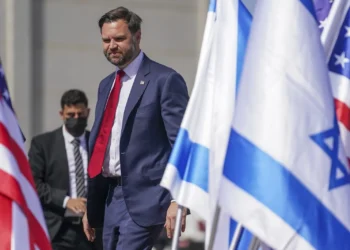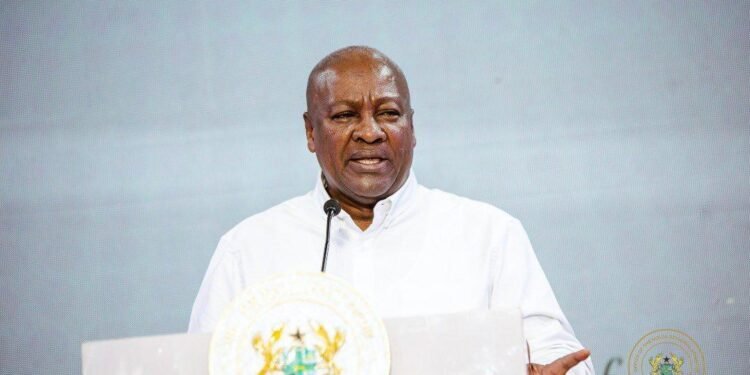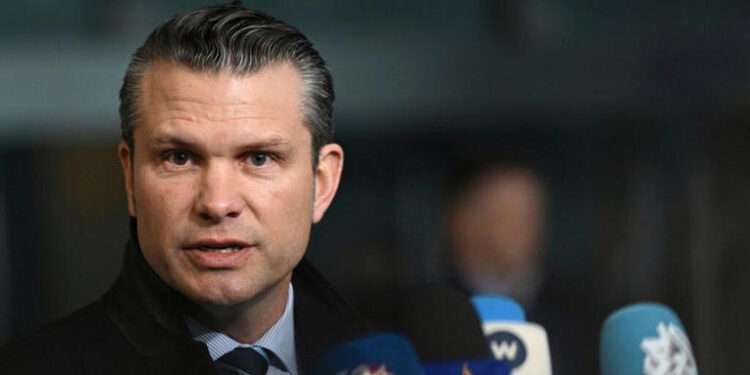Hamas has said that it is ready to release all its remaining hostages in a single exchange if the ceasefire agreement with Israel moves forward to a second phase next month.
In the final steps of the first phase, Hamas will hand over the bodies of four Israeli hostages on Thursday, including those of two young boys from the same family.
The group will release six hostages on Sunday and then transfer four more bodies next Thursday.
That will complete the first six-week phase of the ceasefire, due to end on March 1, 2025, leaving a further 58 hostages in the hands of Hamas and allied militant groups in Gaza.
Israel believes that 34 of the remaining hostages are dead.
The agreed plan for the second phase was for hostages and bodies of the dead to be exchanged for Palestinian detainees and prisoners in staggered groups.
However, Hamas suggested on Wednesday, February, 19, 2025, that it was prepared to accelerate the process.
A senior Hamas official, Taher al-Nunu told a news agency that the group was ready to release all remaining hostages in one handover during the second phase.
“We have informed the mediators that Hamas is ready to release all hostages in one batch during the second phase of the agreement, rather than in stages, as in the current first phase.”
Taher al-Nunu
Under the agreement, Israeli troops are due to withdraw from the Philadelphi corridor, a buffer running along Gaza’s southern border with Egypt, in the first eight days of phase two.
That is something Israeli Prime Minister, Benjamin Netanyahu has previously refused to do, emphasising the corridor’s strategic importance.
At the same time, Netanyahu is demanding that the second phase include the disarming of Hamas and its removal as an organisation, but he has been hazy about who would replace them in running the territory.
Under the original agreement, talks over how the second phase would be implemented were supposed to begin at the beginning of February.
Not much time now remains before phase two is due to begin on 1 March, and there are contentious issues to be resolved.
Netanyahu embraced Trump’s declaration earlier this week that the US would take control of the Gaza Strip and that the entire Palestinian population of more than 2.2 million would somehow be moved out of their homeland.
Few in the region believe Trump’s proposal will be carried out.
On Wednesday, the United Arab Emirates (UAE) joined Egypt and Jordan in opposing the plan, which would require the cooperation of neighbouring countries to absorb the deported Palestinians.
Israel Signals Readiness To Discuss Second Phase
Hamas’ offer came as the Israeli Prime Minister, Benjamin Netanyahu, signaled his readiness to talk about a second phase of the Gaza ceasefire after an extended delay, by appointing one of his closest advisers, Ron Dermer, a US-born Cabinet Minister and former Ambassador to Washington, to lead the Israeli delegation to the talks.
Dermer replaces the heads of the Mossad and the Shin Bet security service, who have led the negotiations until now and have frequently been at odds with Netanyahu over his reluctance to move forward with the ceasefire.
Netanyahu has long resisted any talk about the second phase of the agreement, which would involve a complete military withdrawal from Gaza, as well as the handover of the remaining hostages, in return for hundreds more Palestinians held in Israeli jails.
Completion of the second phase would in effect represent the end of the war.
However, the far-right wing of Netanyahu’s coalition adamantly opposes such a step if it leaves Hamas as a significant force inside Gaza.
READ ALSO: GNAT Urges GES To Rescind Decision on Mass Dismissals






















